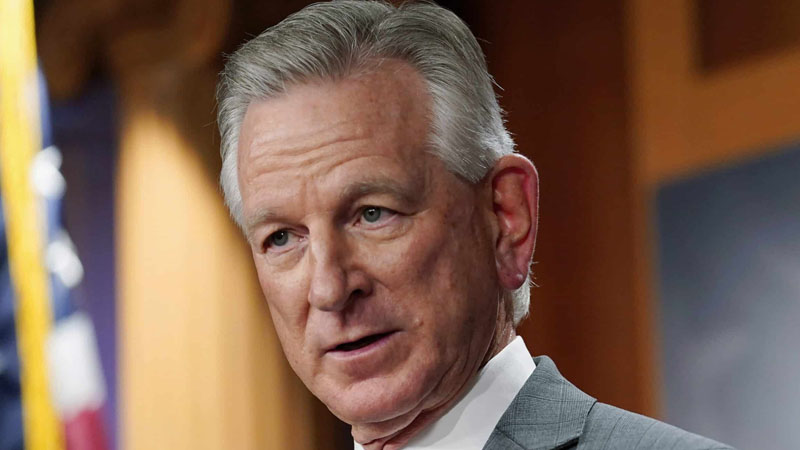Loyalty Test Looms: Trump’s Picks Stir GOP Unease as Small-State Senators Rally Around Thune

© rr.
As President-elect Donald Trump unveils a list of controversial cabinet nominees, Senate Republicans are bracing for a delicate balancing act. With picks like Rep. Matt Gaetz (R-FL) for attorney general, former Rep. Tulsi Gabbard (D-HI) for director of national intelligence, Fox News personality Pete Hegseth for secretary of defense, and vaccine skeptic Robert F. Kennedy Jr. for Health and Human Services, GOP senators may soon face an uncomfortable loyalty test. Some signals already suggest that the party might not offer Trump full compliance.
A recent report by The Washington Post’s Paul Kane highlights a notable shift within the GOP ranks, especially among small-state senators who appear ready to “rally around their own” instead of deferring to Trump’s wishes. One of the strongest indications of this quiet resistance came from Sen. John Thune (R-SD), who recently won re-election as Senate majority leader in a secret ballot, defeating high-profile, pro-Trump rivals like Sen.
Rick Scott (R-FL) and Sen. John Cornyn (R-TX). According to Kane, Thune succeeded by building a coalition rooted in smaller states, securing loyalty from allies in regions where local interests and Senate traditions still hold strong sway. Thune’s re-election, as Kane notes, was a blend of pragmatism and subtle defiance. While the South Dakota senator assured colleagues he would back Trump on key issues, he hinted he might draw the line on matters that threaten Senate norms.

Specifically, Thune appeared cautious about calls to eliminate the filibuster, a rule that requires a 60-vote threshold for most legislation. “When asked about filibuster rules that force 60-vote hurdles on most legislation, Thune retreated into Senate-speak by referring to the chamber’s tradition of being a ‘place where the minority has a voice,’” Kane reported, suggesting Thune’s reluctance to heed Trump’s potential demands for its removal.
Interestingly, Trump refrained from endorsing any candidate in the race for majority leader, but the contest itself revealed the evolving loyalties within the GOP. Trump had a clear favorite in Rick Scott, supported by many of Trump’s pro-MAGA activists. However, small-state senators seemed determined to assert their own power by throwing their weight behind Thune. Sen. Kevin Cramer (R-ND) illustrated this unity, saying, “As long as the spirit of Theodore Roosevelt is alive, the Dakotans will stick together.”
Alongside Thune, Cramer and other Dakotan senators formed a coalition that Kane describes as a “power center from three states with a combined population of less than 5 million people,” a reminder of the small-state strength that often wields outsized influence in the Senate.

As for Trump’s cabinet picks, the extent of the Senate GOP’s willingness to back these “off-the-wall” appointments remains uncertain. Figures like Gaetz, Gabbard, Hegseth, and Kennedy represent a dramatic shift from conventional nominees and have generated considerable controversy. Yet, Senate Republicans have not clearly signaled how they plan to respond to Trump’s unconventional choices.
This early test of loyalty underscores the tension within the GOP as it faces Trump’s second term. For now, senators like Thune seem committed to preserving certain Senate traditions and asserting their own power. Whether this resistance grows stronger or folds under Trump’s influence will likely shape both the trajectory of his administration and the role of the Senate in navigating Trump’s sometimes divisive agenda.
The coming months will be a revealing period for the GOP, as senators weigh the demands of their constituents, the expectations of party loyalists, and the need to preserve institutional stability. As Thune’s election shows, small-state senators are ready to carve their own path, a choice that may ultimately influence the success or failure of Trump’s more radical appointments.


